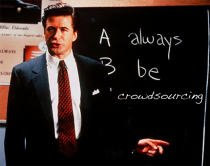What will the future of Internet regulation look like?
|
2010 may have been the year when social media officially emerged from its fledgling stages into semi-organized, proven business models with real profit potential but 2011 is well on its way to cementing social media’s place within the media ecosystem, and extending the growing presence of digital media. With IPO successes like LinkedIn, whose share prices more than doubled its opening day, and the likes of Facebook and Zynga set to follow suit in the next year, where will digital media evolve, especially with new communication platforms like social networks and microblogs paving new media not just new means of connecting individuals, but new ecosystems altogether? And with commercial success, policy and legislation will surely follow. But in what shape will this take place and what will be the rules of law and economics that can be applied in the age of the digital economy? Within media, perhaps the case we hear about the most is online censorship in China, where access to sites like Facebook and Twitter is routinely blocked. While these may be the most extreme and defined cases, Internet regulation takes place in more places than most would think; in its 2011 analysis, Reporters Without Borders added France to its list of countries under “surveillance watch” for the implementation of an administrative filtering system meant to maintain a “civil” Internet (i.e., keep out materials such as child pornography). Beyond just government regulation, however, we have also seen the case studies for social media develop over the last two years from the use of Twitter in sharing news from within “closed” borders like Iran in the “tweet heard around the world” to the most recent uses in the Middle East in actually galvanizing and organizing large scale gatherings. With this type of power, governments around the world have a natural interest in the evolution of digital media. And with a medium that is by its very nature borderless, where will borders be drawn? By where users are located, servers, or corporations incorporated? The digital era has given users quick access to an unprecedented amount of information, but with this access also comes the need to develop a very different regulatory framework to ensure the digital security — and freedom — of its users. Last year, I put together a presentation that looked at the state of Internet content regulation as it stood in 2010, and in 2011, it’s a topic that seems to be more relevant than ever. Even over the course of the past year, Internet regulation has continued to evolve, just as the web itself has. Â However, the basic questions posed on economic, legal, and social issues remain the same: in a borderless world that continues to more closely emulate the physical world, and in some cases, creates even more intricate relationships, how should the Net be governed? Internet Content Regulation in 2010 (Wendy Qi) |



Pingback: A useful blog post on internet regulation in China « hallcrossmedia
Pingback: Congratulations, Mr. President — Parte Deux | e.piphany